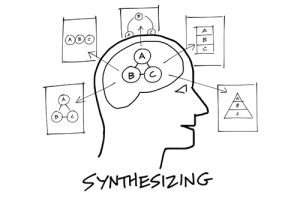First of all, let me say that after reading classmates’ bibliography posts, I’m convinced I must read this publication in its entirety. For this post, however, I chose to focus on readings reviewed by Maury and Summer.
I selected Maury’s post as she worked with an article that centered on rhetorical concerns of assessment models. Maury’s reference to the actual steps used to create the assessment rubric by Van Kooten and her students was – I think – particularly helpful in terms of referring back to using “existing systems” (print media networks), reminding me of some of the How Stuff Works articles describing WiFi. Such rubric building processes may suggest not only the “shortcomings” (Maury’s notes) of previous creations meant for another type of genre, but may also be worth examining in order to peer into how this new genre reveals a situational as well as theoretical gap. I’m reminded here of Foucault’s emphasis on the value of examining disruptions as a way to “disconnect the unquestioned continuities by which we organize, in advance, the discourse that we are to analyze” (Foucault 25). In the case of this article, those “unquestioned continuities” are the traditional rubrics of text assessment.
Summer’s entry focused on an article highlighting the “Language of Evaluation” and the “Language of Instruction.”
Her post reminds me further that the culture – might we say genre culture? – that guides and informs the logic and vocabulary of its discourse is often invisibly bound by the threads of its origins in text (again I’m reminded of Foucault’s archaeology as an analysis tool, which is proving useful time and again). Summer’s observation that the assignments described in the article represent “a network unto themselves between different kinds of technologies, students and teachers” etc. as well as a “network of shared skills” through collaborative work is particularly useful to me as I begin to think about how to explore the MOOC structure of my OoS. It reminds me that the concept of network can serve us well on multiple levels: visualization, logic and rhetoric, mechanical and organic structures. The web of possibilities is taking shape!


